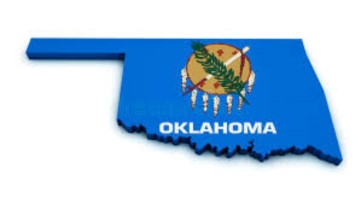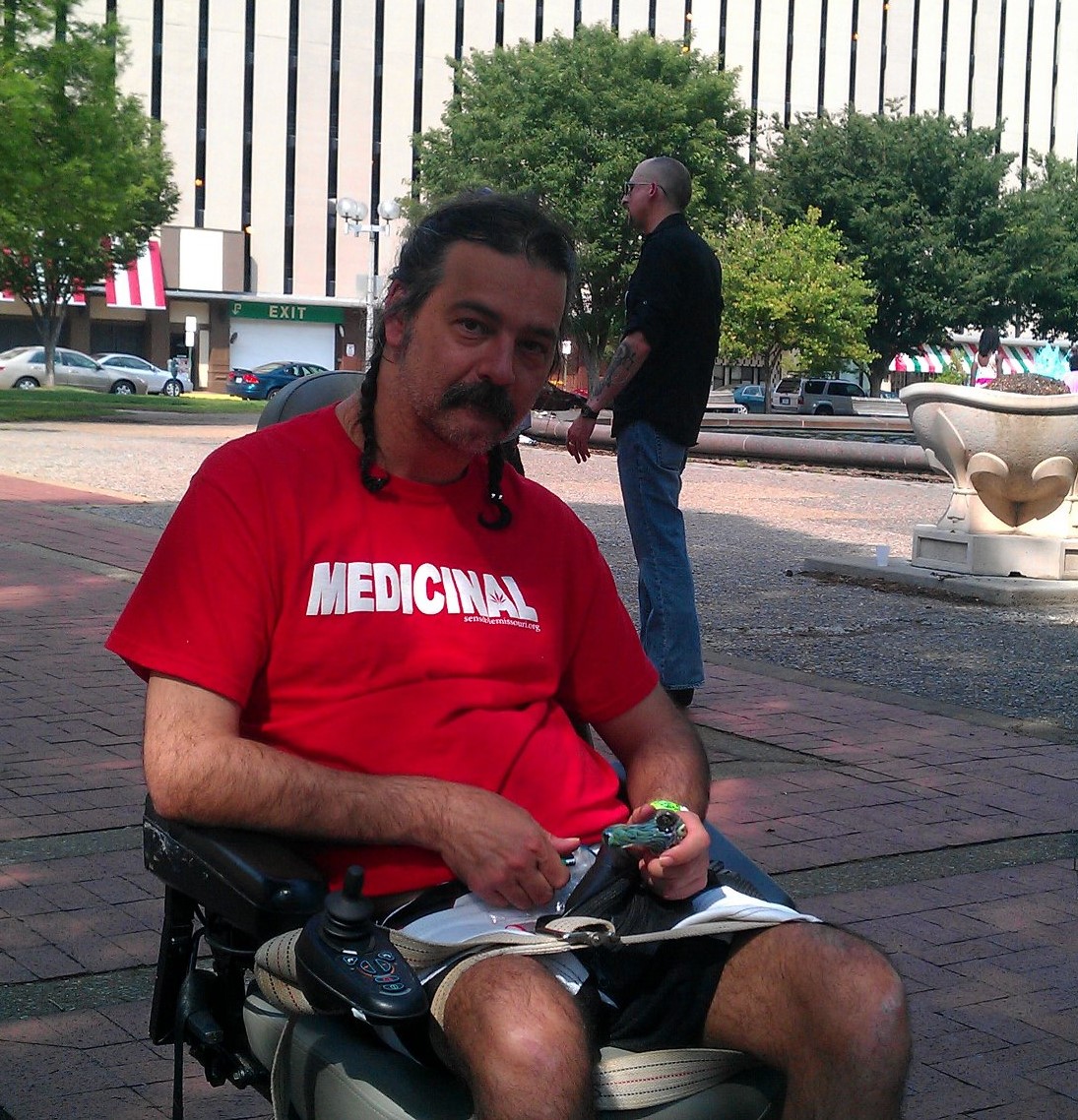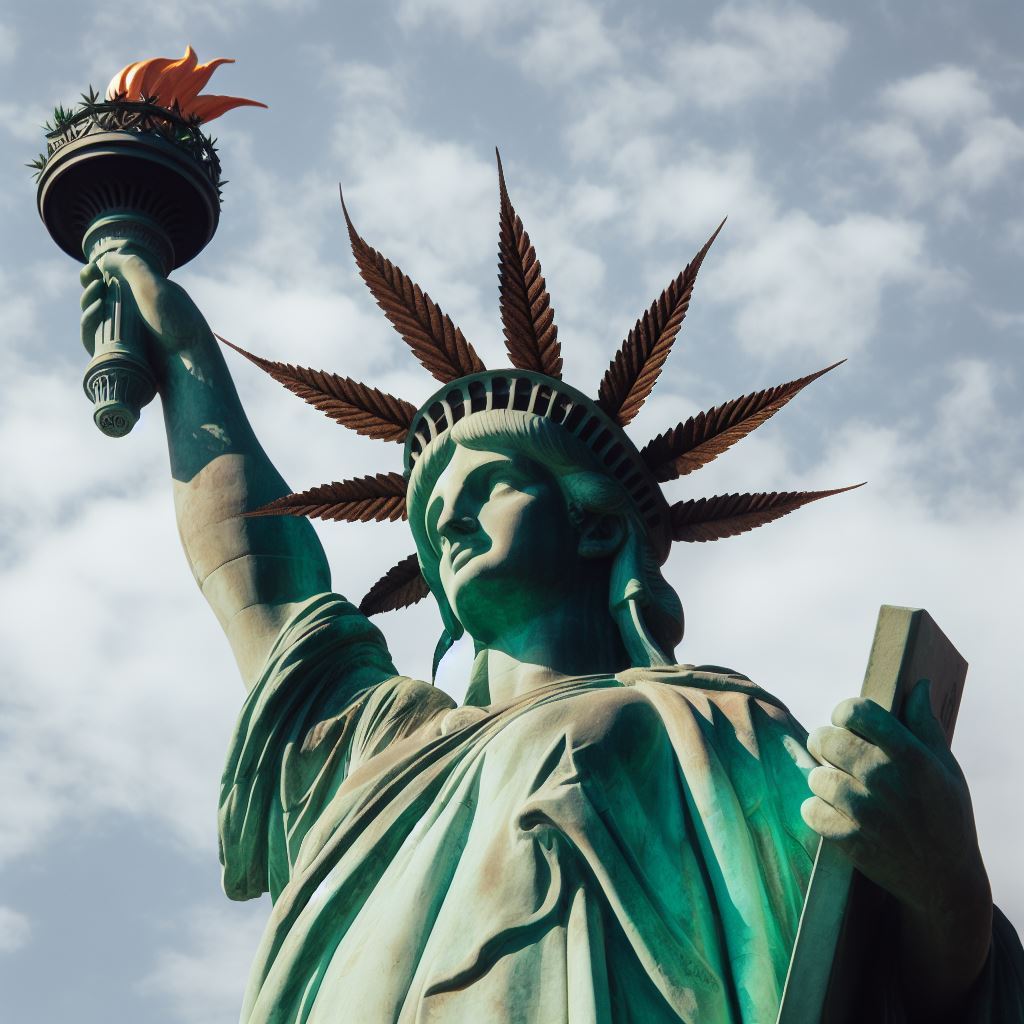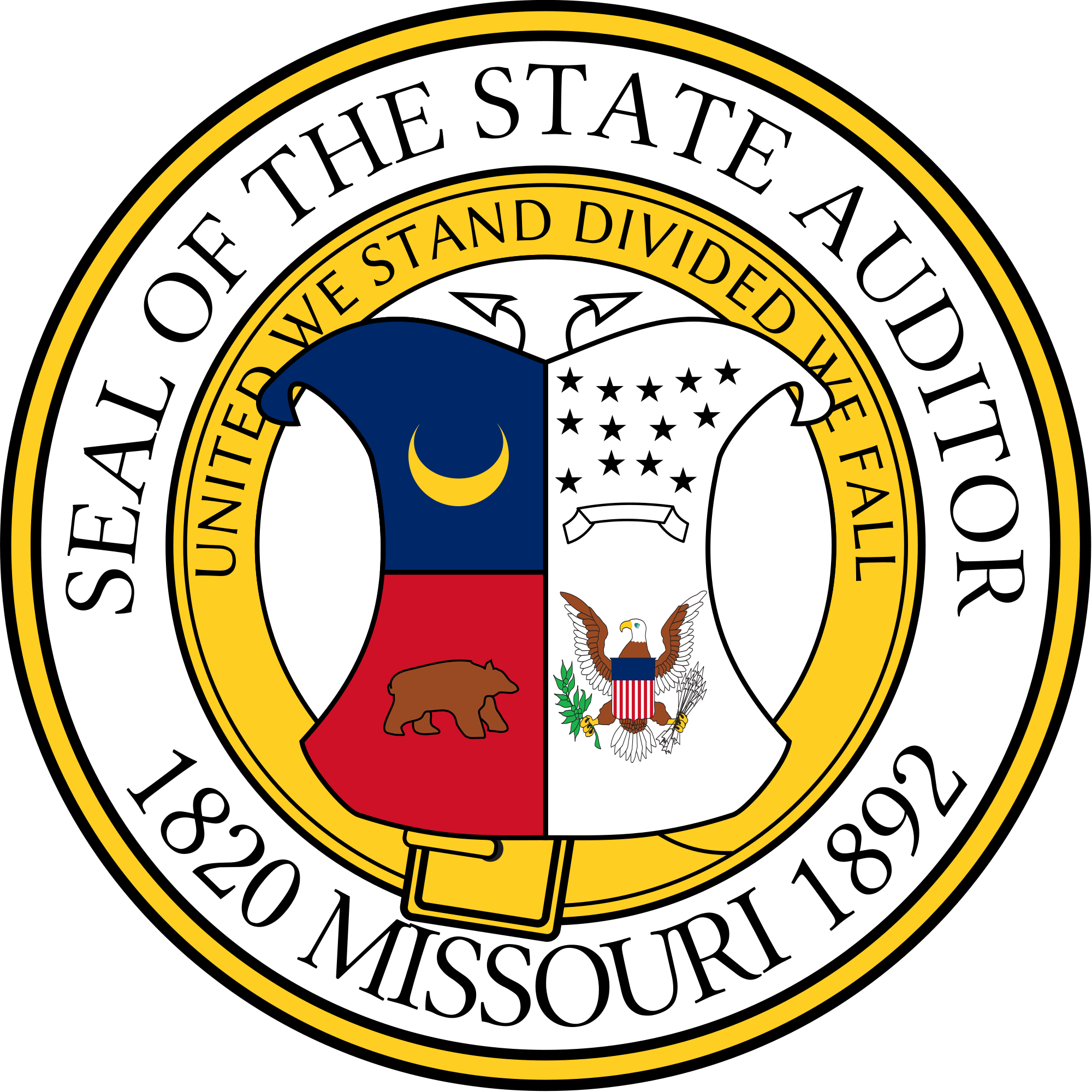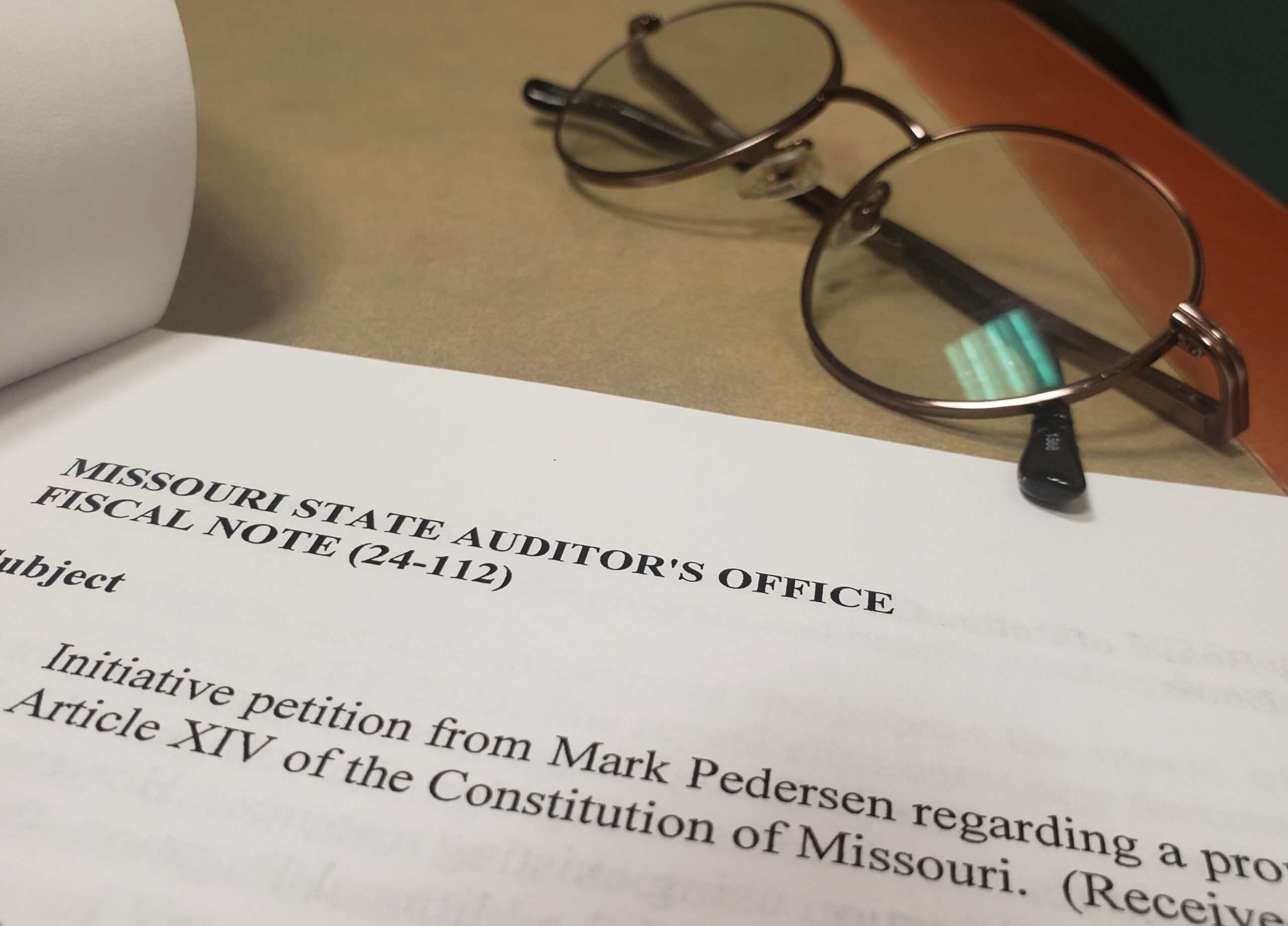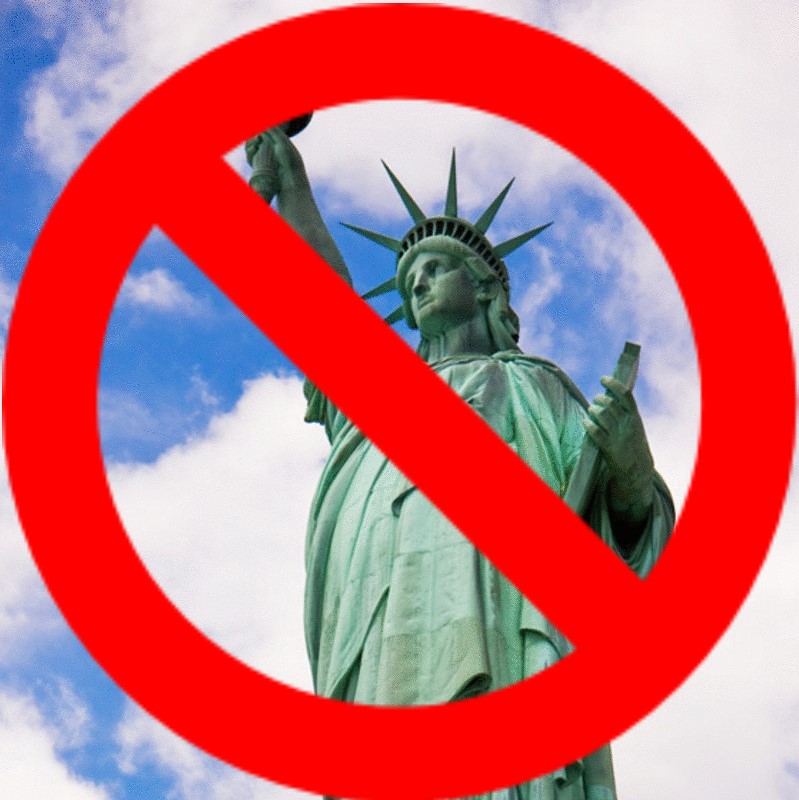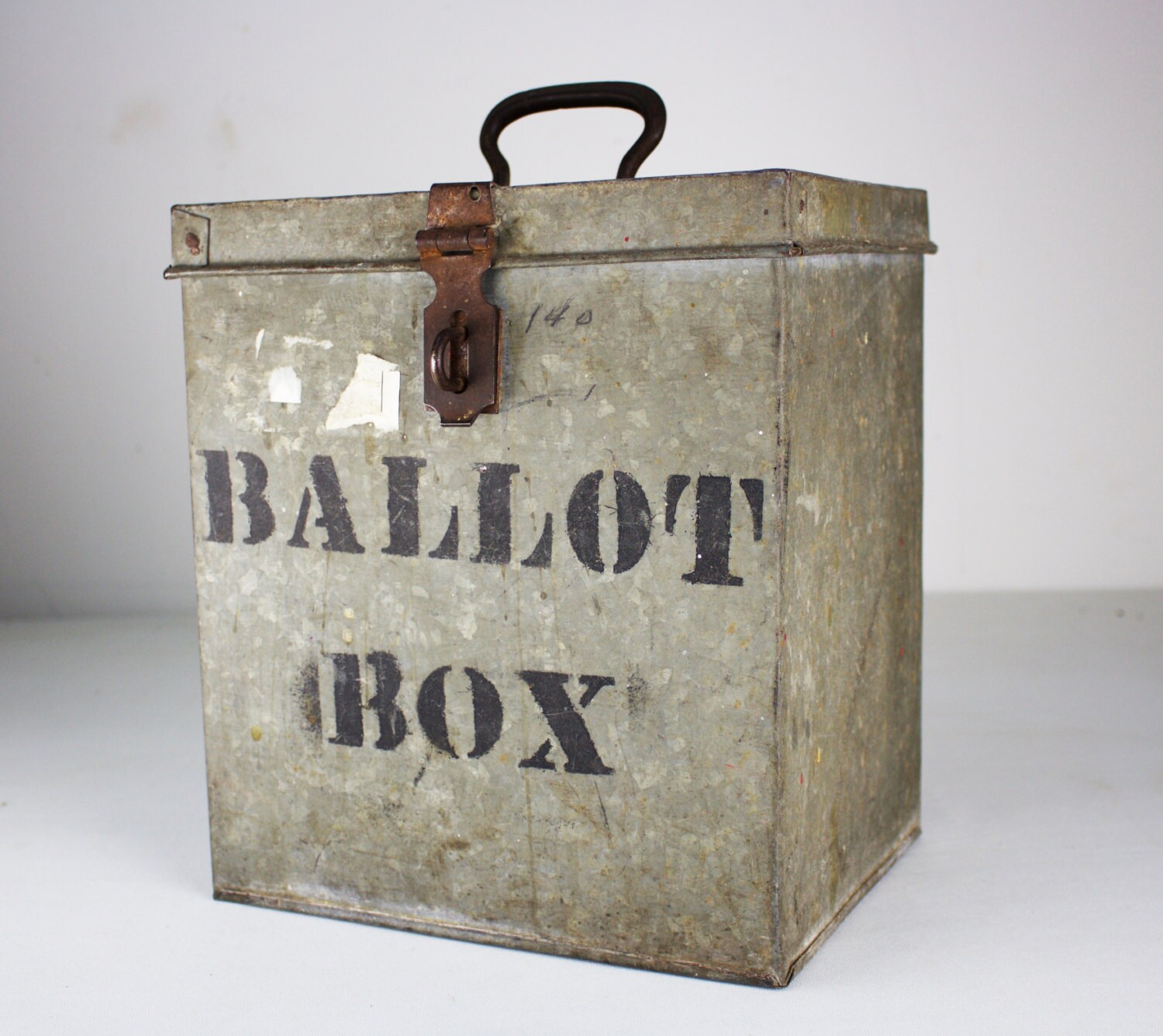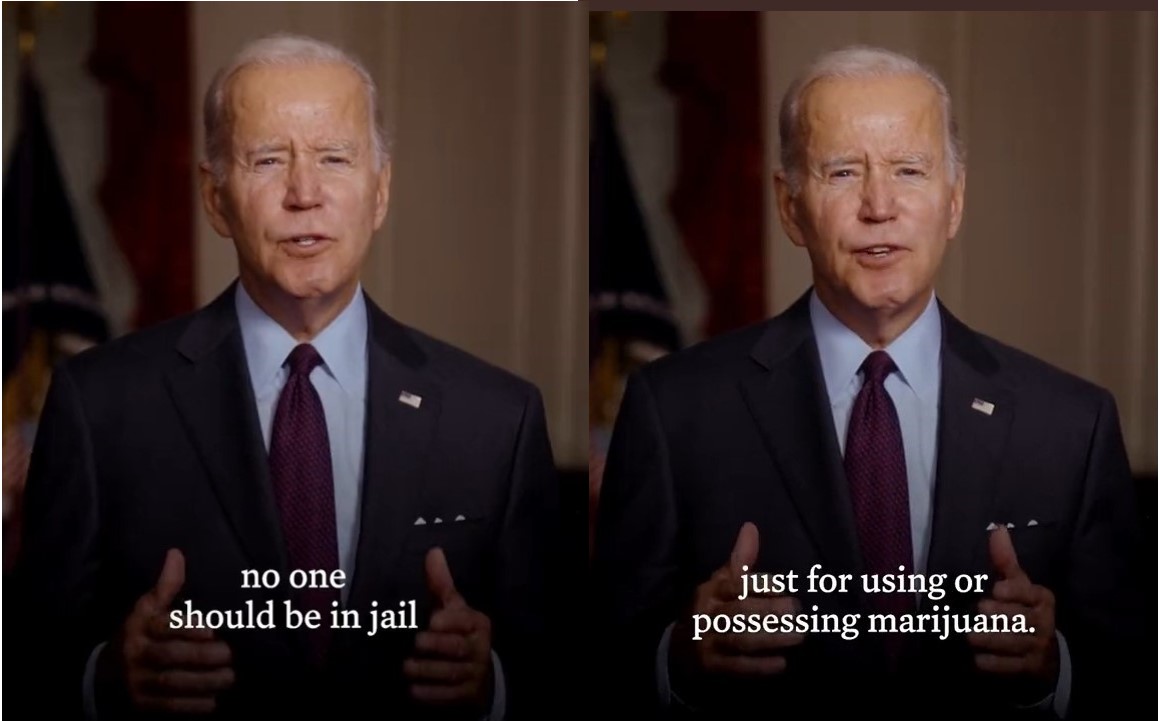My Critique of State Question No. 796, Seeking to Amend Oklahoma’s State Constitution
This article was first published in the Medical Cannabis Journal on September 6th, 2018.
According to Article V, Section 1 of the Oklahoma Constitution:
“… the people reserve to themselves the power to propose laws and amendments to the Constitution and to enact or reject the same at the polls independent of the Legislature, and also reserve power at their own option to approve or reject at the polls any act of the Legislature.
…and in Section 2,
“The first power reserved by the people is the initiative, and eight per centum of the legal voters shall have the right to propose any legislative measure, and fifteen per centum of the legal voters shall have the right to propose amendments to the Constitution by petition,…”
Please note:
Even though this initiative is eleven pages, every qualified voter is required (by law) to read the initiative – in its entirety – before signing the petition.
My comments address only the points that I believe are most pertinent. I encourage you to read the initiative completely and come to your own conclusions.
I will be presenting my REAL legalization initiative for the state of Oklahoma very soon.
State Question No. 796, Initiative Petition
Section 1.A
1. Provides that marijuana be classified as a non-legend herbal drug regulated by the newly created Oklahoma Cannabis Commission. Further, that the Oklahoma Cannabis Commission shall be granted rule making authority under the Administrative Procedures Act to implement and enforce the provisions of this measure.
“Non-legend herbal drug”. What that actually means is, Cannabis, in general, would be classified the same as an over-the-counter pharmaceutical product, or “nutraceutical”.
The dangers of doing this are astronomical. Cannabis is food. It has been for over 30,000 years. Our foods do not belong in a pharmacy; prescription or otherwise. Cannabis is holistic, natural, “non-toxic” medicine. Putting lies regarding Cannabis into a state constitution further intrenches the injustices of prohibition.
Continuing ahead…
3. Provides that the Oklahoma Cannabis Commission be created within 90 days of passage of this initiative.
a. The Oklahoma Cannabis Commission shall regulate the awarding of medical marijuana licenses, retail licenses, transportation licenses, growing
licenses, and processing licenses. Further that the Oklahoma Cannabis Commission shall only have oversight in three very specific areas.
I have expressed this concern with a number of other initiatives and bills drafted across our Union. Who is responsible for creating the oversight commission? Who picks the people of authority and what criteria will be used to determine their qualifications? I see no mandated educational qualification specific to Cannabis or otherwise.
What this means is, prohibitionists will be given the opportunity to hand pick other prohibitionists to oversee and police Oklahoma’s medical Cannabis program. In every state that has done this, (and every state HAS done this), there has been considerable confusion, corruption, persecution and ridiculously costly and unnecessary litigation.
b. The tracking of medical marijuana sales. A reporting system will be put into place by which the Oklahoma Cannabis Commission will track the monthly sales of medical marijuana in Oklahoma. This will be done in a non-burdensome fashion and should not result in undue hardship or expense for the reporting entities.
c. The tracking of medical marijuana by weight of medical marijuana produced, sold, processed, and repackaged. A reporting system will be put into place by which the Oklahoma Cannabis Commission will track the monthly movement of medical marijuana in Oklahoma. This will be done in a non-burdensome fashion and should not result in undue hardship or expense for the reporting entities.
Without a definitions section, the powers-that-be are left to their own meaning of “non-burdensome fashion” and “undue hardship or expense”. Understanding that lawmakers in most states are essentially lacking any real understanding of medical cannabis’ efficacy and, consequently, exercise a politically motivated version of prohibition. Without definitions, this line is basically null at best, but more than likely, will cause confusion, unnecessary hardship and expense for the Oklahoma Cannabis patient.
d. The inspection and compliance of processors producing products with marijuana as an additive. The Oklahoma Cannabis Commission will be compelled to, within 120 days of passage of this initiative, appoint a board of 12 Oklahoma residents, who are marijuana industry experts, to create a list of safety standards for processing medical marijuana in Oklahoma. These standards will be adopted by the Oklahoma Cannabis Commission who will in turn enforce these standards for processors. The Oklahoma Cannabis Commission will develop a standards review procedure and these standards can be altered by calling another board of 12 Oklahoma industry experts.
So, we have, state lawmakers with no real education regarding Cannabis and its therapeutic importance, the majority of which being prohibitionists as noted by their past years of anti-Cannabis behavior, suddenly gifted with the responsibility of creating a “Oklahoma Cannabis Commission”. Without any specific criteria as to who would fill influential positions within this “commission”, we can only expect that those appointed would carry the same tenants as those who picked them. Then in turn, the “Oklahoma Cannabis Commission” will use their own limited knowledge base to assemble their “12 Oklahoma industry experts”? And if they don’t complete the job, they’ll just create another “12 Oklahoma industry experts”?
Now, this begs the question: Since cannabis, in all its forms, has been strictly illegal prior to Oklahoma’s latest medical Cannabis initiative, and by its own directive, no out-sourcing beyond its borders is permitted, how did Oklahoma suddenly produce “industry experts”?
Does anyone else see a problem with this?
4. A state wide tax will be established for medical marijuana not to exceed 7%. Tax will be collected at the point of retail sale. Tax proceeds will go to first, financing the regulatory office. Should proceeds exceed the budgeted amount for running the regulatory office, surplus funds will be divided with 75% going to the Oklahoma State Department of Education general fund and 25% going to the Oklahoma State Department of Health and earmarked for Drug and Alcohol rehabilitation. Local municipalities may levee an additional tax, not to exceed 2%, to be earmarked for road construction and repair. No other taxes shall be imposed.
So, the Constitution for the state of Oklahoma is to be amended to, according to the writer(s), benefit its state’s chronically and terminally ill. Really? This amendment mandates that the state will charge a tax on all who seek healing through a Oklahoma Cannabis dispensary. But the funds collected from the sick will not benefit the ailing in any way… other than pay for the overly invasive administration overseeing their access.
This is commonly called a “sin tax”. It’s not sales tax (but in addition to it) and it’s imposed specifically on Cannabis, much the same way as cigarettes and alcohol are taxed. In other words, if you’re going to participate in these “vices”, you should be penalized – to discourage the practice.
This makes every medical Cannabis patient in the state of Oklahoma essentially a “sinner” and deserving of a financial penalty for picking a holistic and effective way to treat their chronic or terminal illness.
Continuing ahead…
Section 1.B – Individual Qualifications:
1. Provides for the consumption of marijuana for medicinal purposes. That a person in possession of any state issued medical marijuana license can:
a. Consume marijuana legally.
Note: If and only if the “person”, not a chronically or terminally ill patient, adheres to the stringent guidelines of this document.
b. Legally possess up to four (4) ounces of dried marijuana.
c: Legally possess four (8) seedling plants in the vegetative state and four (8) mature plants in the flowering state. Instances where a physician sees need for an extended plant count, license holders may, with physician recommendation, obtain a plant count extension letter at no cost from the Oklahoma Cannabis Commission which will allow extension letter holders to no more than double their individual plant count. A mature plat will be defined as any marijuana plant whos producing flowers. Medical marijuana grows (indoor or outdoor) must be secured and not visible form the road, public easement, or sidewalk.
Ok… let’s do some math here.
Let’s say you’re growing your maximum number of plants and you’re a good grower, achieving your maximum yield. That would be 8 mature plants (four plus four – extended by your physician), at the time of harvest. Now, let’s say an average healthy Indica hybrid medicinal Cannabis plant realistically gleans eight to sixteen ounces of dried plant material (sativas can bring in as much as a pound or more per plant).
8 X 16 = 128 ounces
You are now illegally in possession of 124 ounces of dried Cannabis. Congratulations, you are now well on your way to being classified a “cartel” by law enforcement.
Let’s be on the conservative side and say you were only growing four plants, and you only produced eight ounces per plant.
4 X 8 = 32 ounces
You are still 28 ounces over the maximum required by law. Without a provision for stockpiling (an allowance to exceed possession limits), you are by law a criminal.
An ever-growing number of people in Colorado are getting busted because of poorly written policy like this. Laws are being created without thinking them through, without doing the math, without an understanding that you “first, do no harm.”
d. Legally possess, or by legal means create, two (2) ounces of concentrated marijuana, in any form.
What is marketed as concentrate in dispensaries is not the same as what a patient or caregiver would produce at home, though state lawmakers and authors of state initiatives tend to lump all things “concentrate” into one. Dispensaries predominantly push “shatters”, “waxes” and variations of the two, along with “distillate” and vape pen cartridges – all designed for a recreational market, even in so called medical dispensaries. When medical patients and their caregivers produce concentrate, it is usually “FECO” (Full Extract Cannabis Oil) or RSO, as some refer to it, using food grade alcohol. FECO is not a recreational product. It does not taste good smoked and does not produce the outcome preferred by recreational users.
For a patient, production runs of anything less than a half of a pound of plant material results in a high percentage of waste and degraded oil, because of the risk of scorching.
Caregivers, like myself, would normally work with a minimum of a pound (453.6 grams) of plant material at a time to conserve resources and maximize yield. “Trim”, waste plant leaf from initial harvest and processing, is usually used by patients. It can be expensive and hard to come by, particularly if one doesn’t cultivate. “Flower”, what most would think of when mentioning the word “marijuana”, would most certainly be preferred, but is almost always cost prohibitive for the average patient producing oil at home.
Every drop of Cannabis oil is “gold” to someone on a fixed income, and/or dying of cancer. It only makes sense that runs that would benefit more than one patient would mean greater benefit for everyone. Patients working cooperatively ease the burden (and expense) on all envolved.
2 ounces of plant material, the legal amount allowed by law per this initiative, equates to 56 grams. In other words, this would be what a patient would have to work with by the guidelines of this initiative. Even a very skilled home oil maker would be lucky to pull five grams, even if it were from the very best Cannabis, and using good home equipment. To a cancer patient, this could mean five days worth of treatment, and that only if the patient does not require topicals or other products in adjunct to their oral or suppository Cannabis oil therapy.
The obvious result would be that patients would have to supplement with questionable concentrate from dispensaries (once harvest has passed – by a week) that demand ridiculously high prices. Many would think that would be just fine. Dispensary owners get rich and tax coffers get stuffed. Everyone is happy! Or so we’re led to believe. Unless, of course, we’re talking about the poor, or those whose moneys have been ravaged by the high costs of conventional medical care. Cancer and other terminal illnesses are expensive.
Understand, in the state of Colorado, the supposed “most legal state” in the nation, 90% of those who need Cannabis, don’t have access. It’s cost prohibitive. For the vast majority of poor and middle class, home cultivation is not possible because they rent. Leases are often drafted relying on Federal law, not state, so most renters, even in Colorado, can not grow Cannabis or consume it at home (many cannot even possess it) without breaking their lease.
Chronic illness further straps the poor, making $300 to $500 dispensary purchases impossibly beyond their reach.
e. Legally possess, or by legal means create, up to 72 ounces of edible marijuana, in any form.
Sounds like a lot, doesn’t it? But what you don’t realize is, they’re not just weighing the Cannabis. In fact, there could be only trace amounts of Cannabis in the edible and the limit would still stand. The weight includes whatever product has been infused.
So as long as you don’t exceed 4.5 pounds of edibles, you’ll be fine. Of course, I doubt you’ll be weighing out your batch of edibles before or after you have prepared them, and, I seriously doubt most patients will be going to the time and expense of preparing only one or two servings at a time.
Remember, this is the total weight of all the edibles in your possession.
f. Legally possess any implements for consumption of marijuana, also known as paraphernalia.
g. Medical marijuana license holders may casually exchange marijuana in amounts of one (1) ounce or less.
This would be with another licensed patient. Anyone else and it would be considered trafficking a controlled substance, which is considered by Oklahoma law to be as harmful as heroin.
Here in Colorado, and most places throughout the country, all things Cannabis are considered “contraband” by law enforcement. To them, you’re not a patient. You’re a drug addict, no matter what the law says.
2. Possession of up to one (1) ounce of marijuana by persons who can prove a medical need, but not in possession of a state issued medical marijuana license, shall constitute a misdemeanor offense with a fine not to exceed $400.
3. Possession of up to six (6) marijuana plants, by persons who can prove a medical need, but not in possession of a state issued medical marijuana license, shall constitute a misdemeanor offense with a fine not to exceed $400.
A lot of Oklahoma Cannabis patients are going to fall into the category of “not in possession of a state issued medical marijuana license”. Most will very quickly realize the ridiculous restrictions are not worth the trouble and expense, or find them impossible to adhere to. But it will cost them much more than $400.
When a home is raided, there is “legal armed theft” (forfeiture). It is a given that ALL things Cannabis will be taken and not returned. In many cases, that alone could represent a loss of hundreds of dollars – and suffering, if the patient cannot afford to replace them.
Items used for cultivation and processing, as well as cash, can be taken without even charging you with a crime. Civil forfeiture represents a thirteen billion dollar a year windfall for law enforcement across this nation. Once law enforcement is in your home, anything they can see is open to their interpretation. Remember, you’re already a criminal in their eyes.
There is often home damage that can run into thousands. If you are in your car, you could lose it to civil forfeiture, or at least have to pay hundreds to get it back if it goes to impound.
If one is renting, as most do, there is a strong possibility of eviction. Many have lost their job, not just the day’s pay to attend court.
So you can see, the $400 fine and misdemeanor charge are really just an insult on top of the real losses many will face. Once you have been charged, the powers-that-be will know where you live and you can expect more of the same.
These charges are to discourage use. Something difficult for someone dependent on Cannabis to relieve their suffering.
4. The regulatory office established under the Oklahoma Cannabis Commission will receive applications for medical license recipients, dispensaries, growers, and packagers within 150 days of the passage of this initiative. The Oklahoma Cannabis Commission will:
a. Within 150 days of passage of this initiative, make available, on their website, in an easy to find location, an application for a medical marijuana license. The licenses will be good for a length of time of one (1) year. Application fee for medical marijuana patient license will be $100. The methods of payment will be provided on the website.
Again, I marvel at the thought of how the “Oklahoma Cannabis Commission” is going to create an all inclusive organization, covering so many different aspects of a heavily regulated industry. As dictated by this initiative, all authority will have to be miraculously self-educated, appointing their own industry “experts”, since no one outside Oklahoma will be allowed to take part in the said industry.
b. Individuals whom are recipients of programs such as food stamps, Medicaid, or Medicare qualify for a reduction of cost of licensing in the amount of 80%. Proof of such program enrollment should accompany license application in order to receive fee reduction.
One would think that this line would be very attractive to someone like me, since I founded and ran services for the poor for many years. But one thing working in benevolence taught me, was to see past the bullshit in people’s words. Promises don’t help the suffering. If people can’t afford dispensary products and are already living hand to mouth, why would they spend precious dollars for a license they might only rarely, if at all use?
Continuing ahead…
Who’s qualified to be patient?
f. All applicants must be 18 years of age or older. A special exception will be granted to an applicant under the age of 18; however, these applications must be signed by 2 physicians and the applicant’s parent or legal guardian. All applications for a medical marijuana license must be signed by an Oklahoma Board certified physician. Qualifying conditions will be; Arthritis, Cancer, Ehrler’s Danlos Syndrome, Glaucoma, HIV/AIDS, Hepatitis C, Amyotrophic lateral sclerosis (ALS), Migraines, Muscular dystrophy, Crohn’s disease, Multiple sclerosis, Chronic pancreatitis, post-traumatic stress disorder (PTSD), Spinal cord injury or disease, Traumatic brain injury, Epilepsy, Seizures, Lupus, Parkinson’s disease, Alzheimer’s disease, Ulcerative colitis, Pain, Any severely debilitating or terminal medical condition that produces one or more of the following: Elevated intraocular pressure, Cachexia (wasting syndrome), Chronic obstructive pulmonary disease (COPD), Severe pain, Severe nausea/vomiting, Seizures, Severe muscle spasms. For any condition not listed a patient would need 2 doctor recommendations to qualify for medical card. A medical marijuana license must be recommended according to the accepted standards a reasonable and prudent physician would follow when recommending or approving any medication. No physician may be unduly stigmatized or harassed for signing a medical marijuana license application. As long as all criteria are met, applications will not be rejected.
Anyone who has worked in Cannabis policy reform has seen this VERY overused list of illnesses many times. Like many of the lines found in this document, it was copied and pasted from other initiatives. It demonstrates the real bigotry that is at the heart of so many of these ballot measures. Strong words? Not for one who has battled chronic illness for almost thirty years.
My original disability was for “Fibromyalgia with severe migraines”. I don’t see either condition listed. Sure, some of the aspects of my illnesses are listed, but chances are, I would be obligated to seek out TWO pro-Cannabis specialists and pay their fees out of pocket. That is something largely impossible here in Colorado. Most doctors here, except “pot docs”, refuse to make recommendations for Cannabis. Even if I were lucky enough to find two specialists willing to write a recommendation for me, I wouldn’t be able to pay for their services.
Being that this is a Constitutional Amendment, it will require another ballot initiative and general election to add even one condition to this list.
Caregivers
g. A caregiver license will be made available for qualified caregivers of a medical marijuana license holder who is homebound. Caregiver license will be a cost of no more than $500 with an annual renewal fee of no more than $250. Once licensed a caregiver may care for up to five (10) medical marijuana license holders. The caregiver license will give the caregiver the same rights as the medical license holder, as well as each licensee’s individual plant counts and possession limits. Applicants for a caregiver license need to submit proof of the medical marijuana license holder’s license status, must submit proof that the caregiver is age 21 or older, and must submit proof that the caregiver is an Oklahoma resident. This will be the only criteria for a caregiver license. Licensed caregivers will be issued a caregiver card which will give the cardholder the same rights as a medical marijuana licensee. Caregivers shall be subject to the same testing regulations as commercial growers.
So, to be a Cannabis “caregiver” in Oklahoma, one must meet this criteria:
– patient they care for must be “homebound”,
– afford all the expense associated with being a “patient”,
– pay up to $500 initially and up to $250 annually thereafter.
– Only then will the “caregiver” be allowed to care for up to “five” license holders (guess the “(10)” is a typo).
– Caregivers will be obligated to pay for expensive testing out of pocket.
What I don’t see is criteria governing how caregivers are going to pay for all this humanitarian effort. Gasoline, utilities (hundreds of dollars per month), cultivation space and supplies, time apart from the work that actually pays the bills, ancillary effort and expense associated with caring for the “homebound”, and costs involved with “testing” – all this in order to provide inferior amounts of medication to the hurting and dying.
If Oklahoma has ANY caregivers, it’s doubtful it will for long. I’m curious if that was the plan all along.
h. Felony drug conviction involving minors under the age of 18 that occur after an individual has obtained a medical marijuana license will result in disqualification from the medical marijuana license completely.
I’m curious…perhaps someone could tell me. In Oklahoma, does the court deny diabetics their insulin under the same conditions? Or, is it as I suspect that the writers of this initiative hold little or no confidence in Cannabis as medicine?
Section 1.C – Retail Application, Qualifications, and Regulatory Provisions
The Oklahoma Cannabis Commission will within 150 days of passage of this initiative, make available, on their website, in an easy to find location, an application for medical marijuana retail license. Application fee will be $2500 and a method of payment will be provided on the website. Any entity and/or person applying for a retail license must be registered to do business in Oklahoma, and all members of any organization must have been continuous residents of the State of Oklahoma for the five (5) year period immediately preceding application. Additionally, no applicant may solicit, borrow, raise, or otherwise collect money from any individual that is not a resident of the State of Oklahoma, and no applicant may borrow money from a corporation and/or other legal entity wherein all any member and/or shareholder is not a resident of the State of Oklahoma.
The Oklahoma Cannabis Commission shall impose disclosure requirements related to source of funding to ensure that all investors, owners, and applicants are residents of the State of Oklahoma. The Oklahoma Cannabis Commission has two (2) weeks to review the application, approve or reject the application, and mail the approval/rejection letter (if rejected, stating reasons for rejection) to the applicant. In cases such as rejection due to paperwork deficiency, applicant would have 14 days to correct issues and return forms without being charged additional fees or penalties. This license will need to be renewed every year and is non-transferable. Cost of license will be set as medical marijuana retail license may not exceed, $25,000.00. Yearly renewal $2,500.00. In the event that an application is rejected for any reason, the application fee shall be refunded to the applicant.
I suspect that much of this is to present an image that Oklahoma is somehow saying “NO!” to the graft seen in other states’ Cannabis programs. Denying out-of-state dispensary chains and investors, of course, has little effect on the illegal activity that ALWAYS springs from heavy regulation. Something Colorado and every other state has not been able to grasp. And just as it be in Oklahoma, the black market has never, and will never “register” with the state. So why is it that lawmakers, and law enforcement scrutinize the “registered” patient first.
Apparently, the Oklahoma Cannabis activists that I have spoken to have not read beyond the “$2500” application fee. It’s not as cheap as you thought. Folks, that’s just to apply. The license fee is set at “not to exceed $25,000″, with a yearly renewal of $2500.
1. Upon application approval, the applicant will have 30 days to pay for the medical marijuana dispensary retail license. The Oklahoma Cannabis Commission must approve all applications which meet the following criteria:
a. Applicant must be 21 years of age or older.
b. Entities applying for a license must be registered to conduct business in the state of Oklahoma.
c. All applicants must disclose all ownership.
d. Applicant(s) must have not had a felony conviction in the last five (5) years.
2. Retailers will be required to complete a monthly sales report and submit said report to the Oklahoma Cannabis Commission. This report will be due on the 20th of each month and provide reporting on the previous month’s sales. This report will detail the weight of marijuana purchased at wholesale and the weight of marijuana sold to card holders, and account for any waste. Additionally, this report will show total sales in dollars, tax collected in dollars, and tax due in dollars. The Oklahoma Cannabis Commission will have oversight and auditing responsibilities to ensure that all marijuana being grown commercially is accounted for. A retailer will only be subject to a penalty if a gross discrepancy exists and cannot be explained. Penalties for fraudulent reporting will be a fine of up to $5000 for each occurrence. Two occurrences within the same calendar year may result in revocation of license.
A program like this will require the hiring of multiple full-time accountants and a host of other professionals. The writers really should have investigated Arizona, New Mexico and Illinois about this and the tangled mess they have dealt with.
3. All products intended for resale must be tested for potency and impurities by a third-party laboratory. These tests will be referenced by batch number and listed on the label of all marijuana product packaging.
Now they have me curious about requirements (if any) for “third-party” testing facilities…
Continuing ahead…
Section I.D. – Growers Application, Qualifications, and Regulatory Provisions
- The Oklahoma Cannabis Commission will within 150 days of passage of this initiative, make available, on their website, in an easy to find location, an application for a medical marijuana grower. Application fee will be $2500.00 and methods of payment will be provided on the OCC website. Any entity and /or person applying for a marijuana grower’s license must be registered to do business in Oklahoma, and all members of any organization must have been continuous residents of the State of Oklahoma for the five (5) year period immediately preceding application. Additionally, no applicant may solicit, borrow, raise, or otherwise collect money from any individual that is not a resident of the State of Oklahoma, and no applicant may borrow money form a corporation and/or other legal entity wherein all any member and/or shareholder is not a resident of the State of Oklahoma.The Oklahoma Cannabis Commission shall impose disclosure requirements related to source of funding to ensure that all investors, owners, and applicants are residents of the State of Oklahoma. The Oklahoma Cannabis Commission has two (2) weeks to review the application and mail the approval/rejection letter (if rejected, stating reasons for rejection) to the applicant. In cases such as rejection due to paperwork deficiency, applicant would have 14 days to correct issues and return forms without being charged additional fees. This license is non-transferable. Cost of license will be set as medical marijuana retail license may not exceed, $25,000.00, Yearly renewal $2500.00. Upon approval of grower application, the applicant shall have 30 days from the date of approval to pay the license fee. The Oklahoma Cannabis Commission must approve all applications which meet the following criteria:
As is the case with “Retail” (dispensaries), a “medical marijuana grower” will be obligated to a $2500 application fee, along with a license of “not to exceed $25,000, with a yearly renewal of $2500.
Continuing ahead…
Section 1.E – Concentrate Extraction Application, Qualifications, and Regulatory Provisions
1. The Oklahoma Cannabis Commission will within 30 days of passage of this initiative, make available, on their website, in an easy to find location, an application for a medical marijuana concentrate extraction license. Application fee will be $2500.00 and methods of payment will be provided on the website. Any entity and/or person applying for a marijuana concentrate extraction license must be registered to do business in Oklahoma, and all members of any organization must have been continuous residents of the State of Oklahoma for the five (5) year period immediately preceding application. Additionally, no applicant may solicit, borrow, raise, or otherwise collect money from any individual that is not a resident of the State of Oklahoma, and no applicant may borrow money from a corporation and/or other legal entity wherein all any member and/or shareholder is not a resident of the State of Oklahoma. The Oklahoma Cannabis Commission shall impose disclosure requirements related to source of funding to ensure that all investors, owners, and applicants are residents of the State of Oklahoma. The Oklahoma Cannabis Commission has two (2) weeks to review the application and mail the approval/rejection letter (if rejected, stating reasons for rejection) to the applicant. In cases such as rejection due to paperwork deficiency, applicant would have 14 days to correct issues and return forms without being charged additional fee. This license is non-transferable. Cost of license will be set as medical marijuana concentrate extraction license may not exceed, $15,000.00, Yearly renewal $1,500.00. Upon approval of medical marijuana concentrate extraction application the applicant shall have 30 days from the date of approval to pay the license fee. The Oklahoma Cannabis Commission must approve all applications
For those seeking to produce “marijuana concentrate”, they will pay an initial $2500 application fee and if accepted, a $15,000.00 license fee, followed by a $1,500.00 renewal few each year following.
Continuing ahead…
2. A licensed processor may take marijuana plants and distill the plants into concentrates, edibles, and other forms of consumption. Per section 1E- 1c., provides that the Oklahoma Cannabis Commission will, within 150 days of passage of this initiative, make available a set of standards which will be used by licensed processors to ensure safety during the extraction process in the preparation of concentrated marijuana products. There should not be excessive or punitive rules established by the Oklahoma Cannabis Commission.
I guess the “Oklahoma Cannabis Commission” will be responsible for determining what is “excessive” or “punitive”. …But Wait! They are the ones who will be enforcing this.
Once a year, the Oklahoma Cannabis Commission shall inspect an extraction facility to determine compliance with standards. If deficiencies are found, a written report of deficiency will be issued to the operator. The operator will have fifteen (15) days to correct said deficiency or be subject to a fine of no more than $5000 per deficiency. A licensed concentrate extractor may sell marijuana products it creates to a licensed retailer or another licensed operator. Further, these sales will be considered wholesale sales and not subject to taxation. Under no circumstances may a licensed concentrate extractor sell marijuana or any marijuana product, directly to a medical marijuana license holder. Operators may perform for a fee, extraction services for medical marijuana license holders or caregivers with product supplied by said license holder or caregiver. Operators will be required to complete a monthly yield and sales report. Monthly reports will go to the Oklahoma Cannabis Commission by the 20th of each month and report on the previous months yield and sales. This report will detail amount of marijuana purchased in lbs., amount of extracted marijuana concentrates in lbs., and amount of wast in lbs. In addition, this report will account for total wholesale sales in dollars. The Oklahoma Cannabis Commission will have oversight and auditing responsibility to ensure that all marijuana being processed is accounted for. A licensed concentrate extraction operator will only be subject to a penalty if a gross discrepancy exists and cannot be explained. Penalties for fraudulent reporting or sales will be a fine of up to $5000 for each occurrence. Two occurrences within the same calendar year may result in revocation of license.
So if someone can afford to drop $15,000 plus $1500 yearly thereafter for a “ medical marijuana concentrate extraction license, they can produce concentrate for patients and caregivers. When Oklahoma’s lawmakers make extraction illegal for patients, as Colorado and other states have done, patients requiring Cannabis oil will be forced to pay those with this license to produce it for them. Looks to me that the writers were more interested in creating another revenue stream than protecting their Oklahoma’s chronically and terminally ill.
Section 1.F – Marijuana Edible Processing Application, Qualifications, and Regulatory Provisions
1. The Oklahoma Cannabis Commission will within 150 days of passage of this initiative, make available, on their website, in an easy to find location, an application for a medical marijuana processing license.
I would assume the writer meant “Medical Marijuana Edible Processing License”.
Application fee will be $2,500.00 and methods of payment will be provided on the website. Any entity and/or person applying for a marijuana edible processing license must be registered to do business in Oklahoma, and all members of any organization must have been continuous residents of the State of Oklahoma for the five (5) year period immediately preceding application. Additionally, no applicant may solicit, borrow, raise, or otherwise collect money from any individual that is not a resident of the State of Oklahoma, and no applicant may borrow money from a corporation and/or other legal entity wherein all any member and/or shareholder is not a resident of the State of Oklahoma. The Oklahoma Cannabis Commission shall impose disclosure requirements related to source of funding to ensure that all investors, owners, and applicants are residents of the State of Oklahoma. The Oklahoma Cannabis Commission has two (2) weeks to review the application and mail the approval/rejection letter ( if rejected, stating reasons for rejection) to the applicant. In cases such as rejection due to paperwork deficiency, applicant would have 14 days to correct issues and return forms without being charged additional fees. This license is non-transferable. Cost of license will be set as medical marijuana concentrate extraction license may not exceed, $25,000.00. Yearly renewal $2500.00. The Oklahoma Cannabis Commission must approve all applications which meet the following criteria:
A “Medical Marijuana Edible Processing License” will cost you $2500 up front and $25,000 for the license, with another $2500 for each year following.
Continuing ahead…
2. A licensed edible marijuana processor may use marijuana plants and concentrates to produce edibles, and other forms for consumption. Per section 1.A-2.c., provides that the Oklahoma Cannabis Commission will, within 150 days of passage of this initiative, make available a set of standards which will be used by licensed processors in the preparation of edible marijuana products. This should be in line with current food preparation guidelines and no excessive or punitive rules may be established by the Oklahoma Cannabis Commission. Once a year, the Oklahoma Cannabis Commission may inspect a processing operation and determine compliance with standards. If deficiencies are found, a written report of deficiency will be issued to the processor. The processor will have one (1) week to correct said deficiency or be subject to a $500 fine per deficiency. A licensed processor may sell marijuana products if creates to a licensed retailer or another licensed processor. Further, these sales will be considered wholesale sales and not subject to taxation. Under no circumstances may a licensed processor sell marijuana or any marijuana product, directly to a medical marijuana license holder. Processors will be required to complete a monthly yield and sales report. Monthly reports will go to the Oklahoma Cannabis Commission by the 20th of each month and report on the previous months yield and sales. This report will detail amount of marijuana purchased in lbs., amount of marijuana cooked or processed in lbs., and amount of waste in lbs. In addition, this report will account for total wholesale sales in dollars. The Oklahoma Cannabis Commission will have oversight and auditing responsibility to ensure that all marijuana being processed is accounted for. A licensed processor will only be subject to a penalty if a gross discrepancy exists and cannot be explained. Penalties for fraudulent reporting or sales will be a fine of up to $5000 for each occurrence. Two occurrences within the same calendar year may result in revocation of license.
Section I.G – Transportation
1. The Oklahoma Cannabis Commission will within 30 days of passage of this initiative, make available, on their website, in an easy to find location, an application for a license to transport of all types of marijuana intended for wholesale distribution to or from; a marijuana retail dispensary, cultivation growing operation, or processing facility. Application fee will bee $500.00, and methods of payment will be provided on the website. Any entity and/or person applying for a transport license must be registered to do business in Oklahoma, and all members of any organization must have been continuous residents of the State of Oklahoma for the five (5) year period immediately preceding application. Additionally, no applicant may solicit, borrow, raise, or otherwise collect money from any individual that is not a resident of the State of Oklahoma, and no applicant may borrow money from a corporation and/or other legal entity wherein all any member and/or shareholder is not a resident of the State of Oklahoma. The Oklahoma Cannabis Commission shall impose disclosure requirements related to source of funding to ensure that all investors, owners, and applicants are residents of the State of Oklahoma. The Oklahoma Cannabis Commission has two (2) weeks to review the application and mail the approval/rejection letter (if rejected, stating reasons for rejection) to the applicant. In cases such as rejection due to paperwork deficiency, applicant would have 14 days to correct issues and return forms without being charged additional fees. This license is non-transferable. Cost of license will be set as medical marijuana Transportation license and may not exceed $10,000.00. The Oklahoma Cannabis Commission must approve all applications which meet the following criteria:
This is a curious one. By what I am reading in this initiative, those seeking a license to “transport all types of marijuana” will have to pay a $500 application fee, and up to “$10,000.00 for each year thereafter (they left out the renewal fee). I think the writer needed a proofreader. This puts “transporters” at the mercy of lawmakers and, no doubt, will cost “transporters” dearly. I guess we can pray the powers-that-be will do the right thing.
Continuing ahead…
Section 1.H – Discrimination Prohibited
1. No school or landlord may refuse to enroll or lease to and may not otherwise penalize a person solely for his or her status as a medical marijuana license holder, unless failing to do so would cause the school or landlord to lose a monetary or licensing related benefit under federal law or regulations.
…and this started out so well. The last line totally nullifies any protection the writers intended with this entry. Unless the Federal Government endorses medical Cannabis, renters and students are screwed.
2. Unless a failure to do so would cause an employer to lose a monetary or licensing related benefit under federal law or regulations, an employer may not discriminate against a person in hiring, termination or impose any term or condition of employment or otherwise penalize a person based upon either:
The same deliberate nullification. The writer should have simply stated that this initiative further enforces Federal law.
a. The person’s status as a medical marijuana license holder.
b. A registered medical marijuana patient’s positive drug test for marijuana components or metabolites, unless the patient used, possessed in plain sight, or was visibly impaired by marijuana on the premises of the place of employment or during the hours of employment.
Excuse me…this is a “medical” Cannabis Initiative, isn’t it? We ARE talking about “medical cannabis” for the treatment of very serious chronic and terminal illness. So Oklahoma cancer patients do not have the right to employment in Oklahoma?
3. For the purposes of medical care, including organ transplants, a registered qualifying patient’s authorized use of marijuana must be considered the equivalent use of any other medication under the direction of a physician and does not constitute the use of an illicit substance or otherwise disqualify a registered qualifying patient from medical care.
…and here, in the very next line, an endorsement of medical Cannabis to “…be considered the equivalent use of any other medication”. You can’t have it both ways.
4. No medical marijuana license holder may be denied custody of or visitation or parenting time with a minor, and there is no presumption of neglect or child endangerment for conduct allowed under this chapter, unless the person’s behavior creates an unreasonable danger to the safety of the minor as established by clear and convincing evidence.
Very subjective. How is the use of a nontoxic substance in the treatment of valid illness, endorsed and overseen by a licensed physician EVER a danger to the safety of a minor? ANY answer in defense of this line would be an admission of ignorance of the decades of science regarding Cannabis.
Cannabis is nontoxic, for all mammals, including human children.
5 . No person holding a medical marijuana license may unduly be withheld from holding a state issued license by virtue of their being a medical marijuana license holder. This would include such things as a concealed carry permit.
Access to firearms, let alone “concealed and carry permits, has been a hot-button topic among Cannabis patients for as long as I can remember. If cannabis were truly made legal by this initiative, this would be a non-issue.
No city or local municipality may unduly change or restrict zoning laws to prevent the opening of a marijuana establishment.
If only the writer of this initiative was as concerned about Oklahoma’s medical Cannabis patients. Apparently, they don’t carry nearly as much importance as commercial endeavors.
6. No city or local municipality may unduly change or restrict zoning laws to prevent medical marijuana license holders from owning, renting, or leasing property a which medical marijuana may be grown.
I’m not sure if it’s the poor grammar that makes this line so confusing, or the subjective nature of “unduly change or restrict”. I believe the intention was to prevent zoning laws from being manipulated solely to restrict Cannabis from being grown in any given municipality. Whichever the case, it’s open to interpretation, which will potentially leave some patients in harm’s way.
7. No financial institution may deny medical marijuana businesses or industrial hemp businesses services by virtue of the nature of their business unless to do so would result in loss of employment, enrollment of coverage, or loss of monetary or licensing related benefit under federal law or regulations.
Financial institutions have for years now denied bank accounts and loans to Cannabis businesses for the very reason this writer has provided as a means to do so – only with this line, their right to deny services will be written into Oklahoma’s Constitution.
8. No commercial insurer may deny medical marijuana businesses or industrial hemp businesses services by virtue of the nature of their business unless to do so would result in loss of employment, enrollment of coverage, or loss of monetary or licensing related benefit under federal law or regulations.
…and now with this line, commercial insurers will be formally given the right to deny coverage to Cannabis businesses.
9. Medical marijuana license holders may not be charged with DUI or DWI or any other charge of marijuana intoxication or impairment based on the results of blood, urine, breath test, or odor of marijuana. A field sobriety test must be administered to prove impairment to charge a medical marijuana licensed patient to be charged with DUI or DWI. These sobriety test must be videoed to be used a, s evidence of impairment.
This line was almost taken verbatim from my previous writings – except, of course, for the mention of “marijuana intoxication”, which is physically impossible, or the bogus requirement of a “field sobriety test”. I recall, back in 2011, when I was writing the “Showme Cannabis initiative”, how some of the “NORML (National Organization for the Reform of Marijuana Laws) crowd” pushed heavy for this because of their preoccupation with presenting Cannabis as an “intoxicant” like alcohol. “Field sobriety tests” were designed to evaluate ALCOHOL intoxication. Alcohol, unlike Cannabis, is “toxic”.
Section 2 – Industrial Hemp
Section 2.A – General Provisions:
1. Provides that any marijuana plant containing 0.3% or less tetrahydrocannabinol (THC) will be considered Industrial Hemp and excluded from the definition of marijuana.
Industrial Hemp defines a very wide range of strains of Cannabis but historically and scientifically has little to do with levels of tetrahydrocannabinol and everything to do with methods of cultivation. The “0.3% or less THC has no basis in science.
What happens when industrial hemp exceeds this limit? Does the farmer lose his crop, as has been the case in other states that press this limit?
2. Allows for possession, growing, selling, and processing of Industrial Hemp and Industrial Hemp products by anyone in the state of Oklahoma provided that the following requirements are met:
a. Individuals who intend to grow Industrial Hemp must register with the Oklahoma State Department of Agriculture.
I’m curious. Does the state of Oklahoma require farmers of far more toxic crops like, say corn, to be “registered with the Oklahoma State Department of Agriculture? Is oversight with the Oklahoma State Department of Agriculture implied with this line?
b. Individuals may not grow Industrial Hemp in close proximity to medical marijuana in order to otherwise disguise the marijuana growth.
I really don’t understand the importance of putting this line into the Oklahoma State Constitution. People are not allowed to break the law with Industrial Hemp? It doesn’t make sense since Industrial Hemp would pollinate the medicinal plants rendering them inferior for medical or recreational use.
c. Crops of Industrial Hemp are subject to inspection by the Oklahoma State Department of Agriculture.
Cannabis SHOULD be overseen by the Department of Agriculture, the same as any other agricultural crop. Stipulating it here is perhaps one of the few GOOD things about this initiative, rather than allowing law enforcement, or a prohibitionist appointed, “Cannabis Commission” to do the job.
In summary
It obviously goes without saying that I’m far from being pleased with this initiative.
As is the case here, “Cherry Picking” lines from other state initiatives rarely ends well. Finding my words in this initiative might seem flattering to some but after reading the glut of this document, it’s apparent that the writer(s) had little understanding for why I wrote my initiatives, in the first place.
Unfortunately, I have yet to see an initiative that was not drafted to serve the narrow wishes of a divisive few, and, to date, I have yet to see any ambition to truly “legalize”.
Case in point, the writer(s) apparent deliberate omission of a line removing Cannabis from Oklahoma’s list of controlled substances.
Any initiative writer(s) that fails to remove Cannabis from their state’s CSL has failed the people of their state and denied the majority of its citizens this most important medicine.
Putting bigoted and prohibitionist language into a state’s Constitution is beyond reprehensible and drives the hope of REAL legalization further from our midst.
Please know, there have been more fines and arrests regarding Cannabis in the state of Colorado since Amendment 64 than ever in the history of the state. This is what happens when poorly written policy is made law. How much worse will be the fate for Oklahoma, with an initiative that falls way short of Colorado’s inferior Constitutional Amendment.
The time has come for law in this nation to reflect the truth and no longer pander to bigotry, corruption and divisiveness. REAL education MUST be the forerunner to the drafting of ANY law, especially when it encompasses such a wide demographic as Cannabis.
Liberty and truth must rein, but they will only do so in America if we insist on it. We have the authority. After all, we ARE the people. We ARE the majority.
Cannabis is nontoxic. Cannabis is food. Cannabis is the single most important medicine of the 21st century.

